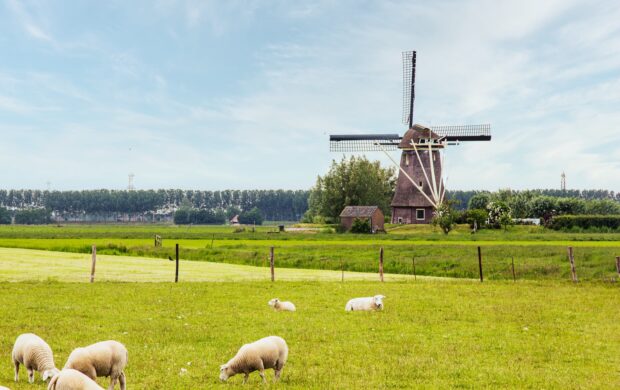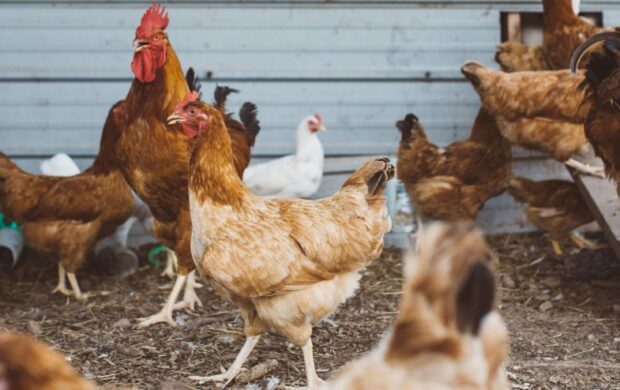
From new plant-based product launches, commitments from companies to plant-based sales and cutting-edge developments in fermentation and ‘extrusion’ – plant-based innovation is hot right now.
But there is a darker side to these developments. Whilst an increase in consumption of plant-based foods in Western diets* can help to improve health and sustainability, it all depends on where efforts for innovation are concentrated. Investment needs to support delivering on health and sustainability or it could risk perpetuating the existing problems in the food system around access to nutritious food.
*We recognise that this is not the only shift needed, and the Great Protein Transformation Challenge aims to look at the role of sustainable animal protein as part of healthy, sustainable diets.
The current environmental impacts of the agriculture industry, coupled with the need to meet the UN Sustainable Development Goals, means that we desperately need a shift in our diets in ways that also help to address inequality and food insecurity.
We recently held our first Action Sprint exploring how plant-based innovation can play a role in catalysing a ‘just transition’ to healthy and sustainable diets – one that doesn’t reinforce existing inequalities or leave anyone behind. It consisted of working with a great and diverse group of participants, through interviews, workshops and offline ‘homework’ tasks over the course of a few weeks.
So what did we find?
Six Solution Areas
Firstly, the group coalesced around six shared solution areas that need to be at the heart of any strategy to address a just transition in the plant based ecosystem.
Out of a range of varied perspectives around the problem – from a focus on affordability to different views on availability and cultural appropriateness (see our summary of the four different problem narratives) – collective wisdom and shared energy around these six solution areas emerged:

You can find the full low-down on these solution areas in our blog.
On their own, each of these solution areas is not new – indeed you can see some of the inspiring signals of change here, identified by Action Sprint participants. But until now they haven’t been recognised as a critical ‘package’ of interventions that need to come together to truly achieve a just transition.
Checklist for ‘just’ innovation
It is not enough to simply identify solution areas; we challenged participants with the question of how to adapt approaches to plant-based innovation to ensure we collectively deliver those solutions.
What emerged was a checklist for those driving R&D or innovation agendas:
- Address the challenges holistically, avoiding trading off one aspect against another
- Design/test for – and commit to – scaling up, at speed, because the challenges are urgent, and we need rapid positive change at scale
- Cater to more different individuals and communities and unmet needs. Innovation must cater to more parts of society and do more to address everyone’s unmet needs around healthy, sustainable eating.
- Look beyond the product level, considering how innovations sit within and affect the bigger picture of what’s needed. This includes:
- Creating genuinely equitable business models, including ensuring food workers earn enough to afford good food.
- Changing eating behaviours for the better, and at scale, based on a solid understanding of where people are starting from.
- Driving and supporting mindset and cultural shifts – recognising and working with the fact that this could take time.
- Decentralise access to good food making it more available out of hours, out of town, or for isolated/less mobile consumers, and easier to grow some fresh produce at home or nearby.
- Empower people through food skills and knowledge, enabling them to grow food and cook more from scratch, understand more about what they’re eating, and help others to do the same (e.g. skills sharing between chefs).
Alongside the full blog on this topic, some of the participants also shared their own organisation’s approach and the questions they are beginning to ask about how to really deliver on this emerging innovation agenda:
- Insight Series: Hubbub’s perspective on innovation for a just transition
- Insight Series: Andrew Carlin on EIT Food’s drive for more inclusive innovation
- Insight Series: Christophe Schmitt on Nestlé Research’s hopes for affordable plant-based innovation
A Call to Action for the plant-based ecosystem
Finally, this effort requires going beyond individual innovations to delivering a ‘just transition’ as an ecosystem. It requires us to find new ways to work together to drive systemic change.
So where next? How can we go about doing this?
From the discussions, we distilled the beginnings of a critical call to action for the innovation ecosystem:
- Break out of our“innovation bubbles” to develop better ideas more in line with what the world needs
- more open innovation processes (eg bringing together young entrepreneurs, academia and civil society as well as business);
- more inclusive innovation to drive equality in who participates (eg less-heard voices and less catered-to communities).
- Rethink partnerships: to build in more ambition and make the best use of respective capabilities – working with those who can take our innovations to scale in different ways, help us share knowledge and information more effectively, distribute our products/services, or help make them more affordable…
- “Matchmaking” to drive impact, including innovating where it’s needed the most, or supporting those who already offer a solution to my problem (rather than competing or reinventing).
- More collective voice and co-ordination across existing smaller-scale innovators, such as community-based initiatives and entrepreneurs (often overstretched and underfunded) to share skills and resources, and demonstrate collective impact and value. Perhaps starting with a national union of community initiatives?
- Combine the best of the past and the present to go faster: drawing on existing/traditional foods, recipes, cooking techniques and knowledge together with today’s science, technologies and insights, to reach positive impact faster and without reinventing the wheel.
- Support some innovations as bridges to a better place if not our ultimate, ideal solution (eg recipe kits as a stepping stone towards more scratch cooking).
- Advocate for policies, subsidies, regulation etc that recognise the connections between health, nutrition, food and the environment.
Are you a taking a ‘just transition’ approach to your innovation agenda,? Are you a leader keen to embed this into your organisation’s strategy? Are you involved in shaping and nurturing plant-based innovation? Do get in touch with Geraldine Gilbert if you are interested to catalyse the contribution of plant-based innovation to a just transition to healthier and more sustainable diets. (g.gilbert@forumforthefuture.org).
This Action Sprint was part of The Great Protein Transformation Challenge, working to drive action at the cutting edge of the protein shift. As long-standing facilitators of multi-stakeholder processes, we are experimenting and learning as we go, around how to bring more diverse people together in dynamic and creative processes to drive change (see some of our insights and learnings from this first Action Sprint here). If you’d like to support or take part in future Action Sprints then please get in touch with Roberta Iley at r.iley@forumforthefuture.org

















Join discussion